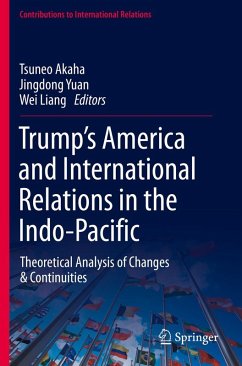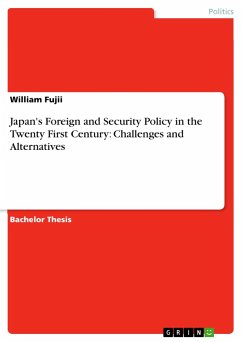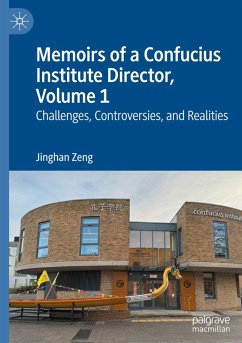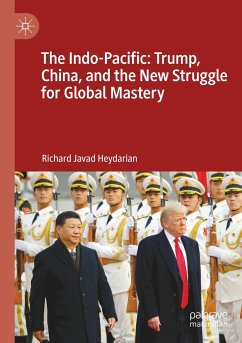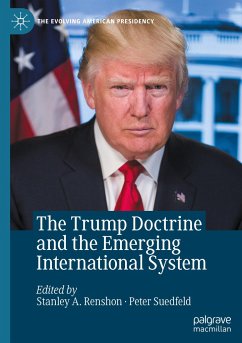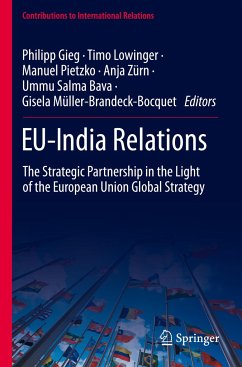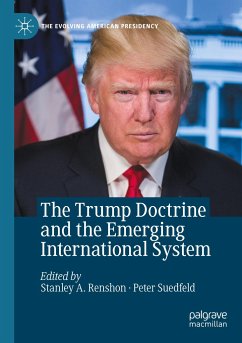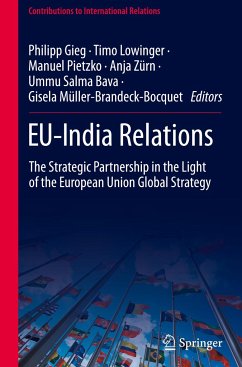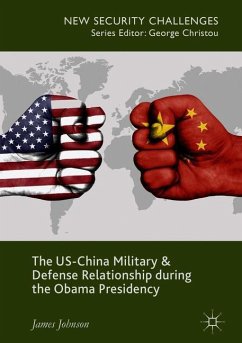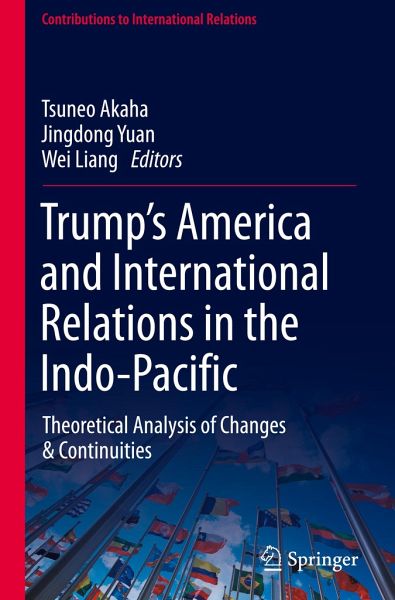
Trump's America and International Relations in the Indo-Pacific
Theoretical Analysis of Changes & Continuities
Herausgegeben: Akaha, Tsuneo; Yuan, Jingdong; Liang, Wei

PAYBACK Punkte
57 °P sammeln!
The book assesses U.S. foreign relations in the Indo-Pacific during the Trump Administration, with a particular focus on the regional powers' response to Trump's "America First" policy. The chapter authors draw on the theoretical insights from dominant International Relations theories - (Neo)Realism, Liberal Institutionalism, and Constructivism - to explain both continuities and discontinuities found in the regional powers' security and foreign economic policies before and during the Trump Administration. The book will be of interest to new and advanced students of International Relations, Asi...
The book assesses U.S. foreign relations in the Indo-Pacific during the Trump Administration, with a particular focus on the regional powers' response to Trump's "America First" policy. The chapter authors draw on the theoretical insights from dominant International Relations theories - (Neo)Realism, Liberal Institutionalism, and Constructivism - to explain both continuities and discontinuities found in the regional powers' security and foreign economic policies before and during the Trump Administration. The book will be of interest to new and advanced students of International Relations, Asian Studies, and U.S. foreign policy. The multi-national perspectives of the regional experts offer penetrating analyses of the likely legacy (or lack thereof) of the range of political, security, and trade policy initiatives launched by the Trump Administration and its implications for the balance of power, regional institutions, and national identity-informed approaches to international relationsin the Indo-Pacific.





